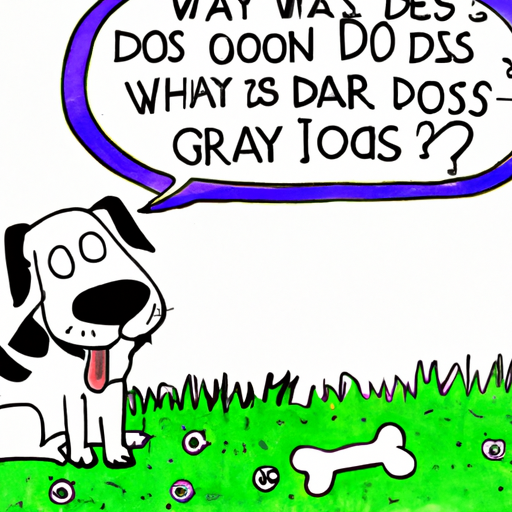As a dog parent, you’ve likely seen your furry friend chowing down on grass and wondered about the reason behind it. Are they hungry? Bored? Or is there some hidden nutritional value in grass that we, as humans, are unaware of? To help you understand this puzzling canine behavior, let’s delve deep into the world of dogs and grass.
H2: Unleashing The Mystery – Why Your Dog Eats Grass
First things first, it’s important to know that you’re not alone. Eating grass is common among dogs. Veterinarians call this behavior ‘pica’ – a term for when dogs eat things that aren’t food. Some theories behind this behavior include:
- Improved digestion: Dogs might eat grass to induce vomiting if they’re feeling unwell.
- Nutritional needs: Dogs might be trying to supplement their diet with fiber or other nutrients.
- Boredom: Dogs might simply find the act of eating grass entertaining.
H2: The Nutritional Angle – Can Eating Grass Benefit Your Dog?
While dogs are primarily meat-eaters, they’ve evolved as omnivores. This means they can extract nutrients from plant materials as well. Grass contains essential nutrients like:
- Fiber
- Vitamin A
- Vitamin C
However, it’s important to remember that your dog’s regular diet, if balanced and complete, should provide all the necessary nutrients.
| Nutrient | Found in Grass | Also Found in |
|---|---|---|
| Fiber | Yes | Whole grains, vegetables |
| Vitamin A | Yes | Liver, fish oil, spinach |
| Vitamin C | Yes | Fruits, vegetables |
H2: The Safety Angle – Is Eating Grass Safe For Your Dog?
Generally, eating grass is safe and non-toxic for dogs. However, there are some risks to be aware of:
- Pesticides or herbicides used on the grass could be harmful.
- Grass might be a host to parasites like ticks or fleas.
- Excessive grass eating might lead to a blockage in the digestive tract.
H2: The Intervention Angle – What Should You Do If Your Dog Eats Grass?
If your dog is eating grass, don’t panic. Here’s what you can do:
- Observe: Is your dog vomiting frequently after eating grass? Are they eating grass obsessively? If yes, consult a vet.
- Diversify their diet: If you suspect nutritional deficiencies, consider incorporating more fibrous foods into their diet.
- Engage them: If you think boredom is the culprit, provide them with more toys or spend more active time with them.
H2: Frequently Asked Questions (FAQs)
Q: My dog is eating grass and vomiting. What should I do?
A: If your dog vomits occasionally and seems healthy otherwise, it’s usually nothing to worry about. But if vomiting is frequent, consult your vet.
Q: Is there a specific type of grass dogs prefer?
A: Not really. Dogs don’t seem to be picky about the type of grass they eat.
Q: Is eating grass a sign of illness in dogs?
A: Not necessarily. While some dogs may eat grass when they’re unwell, many perfectly healthy dogs also eat grass.
Remember, as a caregiver, your role is to ensure your furry friend’s well-being. Now with a better understanding of why your dog might be eating grass, you can make informed decisions about their health and happiness.



